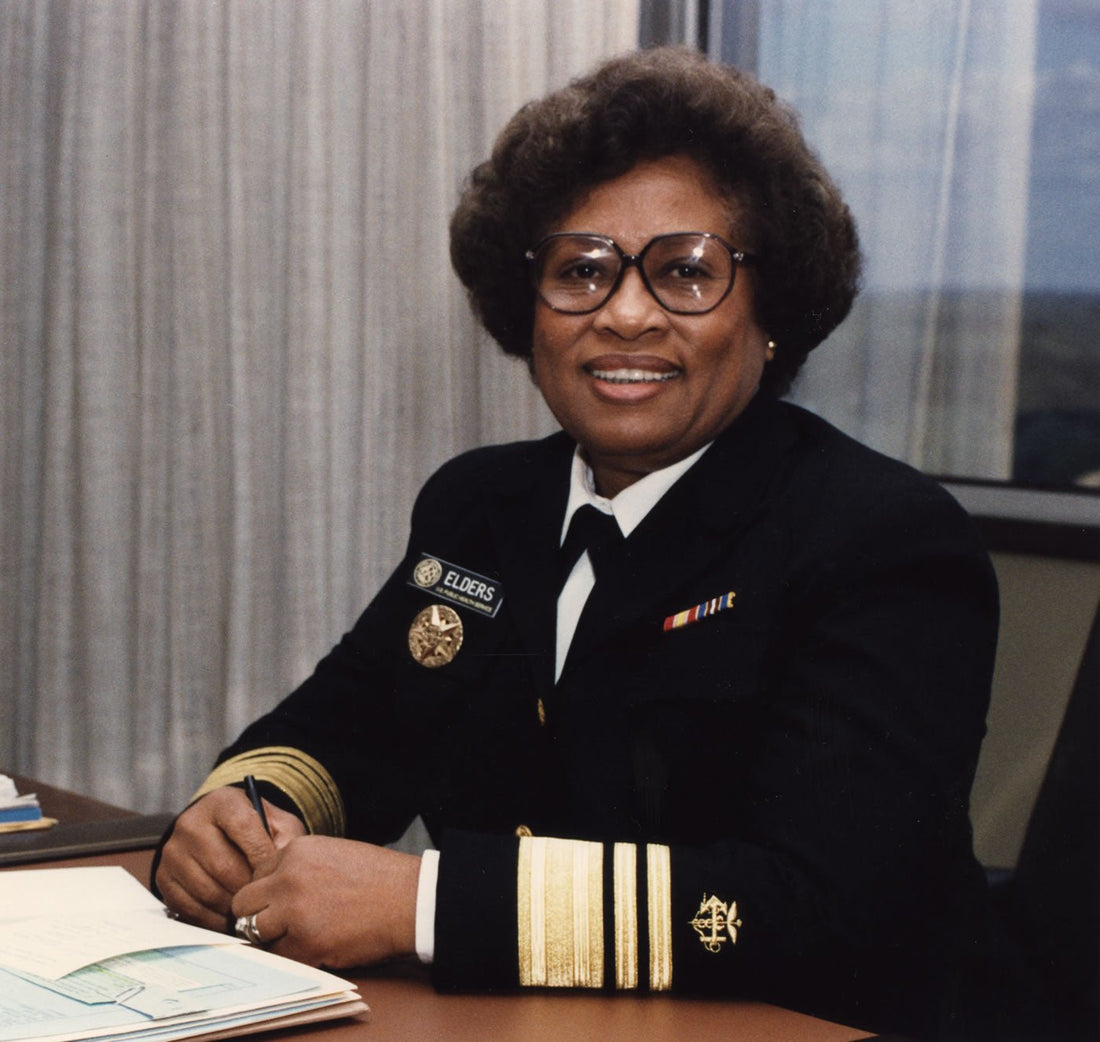
What is the story behind Masturbation Month?
Share
In a society often filled with taboos and unease around discussions of sexuality, the subject of masturbation remains particularly difficult to broach in public discourse. Jocelyn Elders, surgeon general of the United States during the Clinton administration, caused a stir by advocating the inclusion of masturbation education in schools. Her position was bold but based on a compelling argument: that education is essential to addressing issues of sexual health and understanding.
Elders aptly remarked, “I think it’s something that’s part of human sexuality and it’s something that maybe should be taught.” Her words resonate as a call for openness and education in an area of human experience often shrouded in secrecy.
Why talk about masturbation?
Masturbation is a natural aspect of human sexuality, yet it is often omitted from discussions about sexual health and pleasure. For many, discussing masturbation can be uncomfortable or even considered taboo. However, as Elders suggests, ignorance and avoidance are not solutions.
Comprehensive sex education, which includes discussions about masturbation, can provide many benefits:
1. Normalize the sexual experience: By recognizing masturbation as a normal and healthy part of human sexuality, we can reduce the shame and stigma associated with it.
2. Promote body awareness: Masturbation can be a way for everyone to explore their body and understand their own sexual responses, discover their erogenous zones, thus promoting a healthier relationship with their own body.
3. Strengthen consent and boundaries: Understanding your own pleasure and boundaries through masturbation can contribute to a healthier approach to sex and consent.
4. Fight misinformation: You've probably already heard that masturbation could make you deaf, blind, dirty. Without proper education, myths and misconceptions about masturbation can persist, potentially leading to confusion or shame.
The origins of masturbation month
The idea of dedicating a month to masturbation awareness and education may raise some questions at firt, but it serves an important purpose. Masturbation Month began in the United States in 1995 , largely in response to the controversy surrounding the dismissal of Jocelyn Elders as surgeon general due to her advocacy for comprehensive sex education.
San Francisco-based sex shop Good Vibrations has declared May as Masturbation Month to promote open dialogue and education about masturbation. This initiative aimed to challenge social taboos and encourage healthier attitudes towards self-preparation.
The importance of masturbation education in schools
Including masturbation education in school curricula can be a controversial topic. However, providing accurate information about sexual health, including masturbation, is crucial for youth development.
Age-appropriate education can equip young individuals with the knowledge and tools to responsibly navigate their changing bodies and emotions. This allows them to make informed decisions, promotes self-esteem and encourages healthier attitudes towards sexuality as a whole.
By destigmatizing masturbation through education, we can contribute to a culture that values sexual health, self-awareness and respect. Jocelyn Elders' call for education remains as relevant today as when she began. It is time to prioritize knowledge and understanding rather than silence and ignorance when it comes to human sexuality!
Our favorite sex education resources for young people are the Olie application , a turnkey social and sexuality education platform for parents
And the Reforme tools, intended for 10-15 year olds.
Sources: Goldstein, Nikki (2013-05-28). International Masturbation Day
Zombeck, Richard (2013-05-20). "Get to Know Yourself -- It's Masturbation Month"



